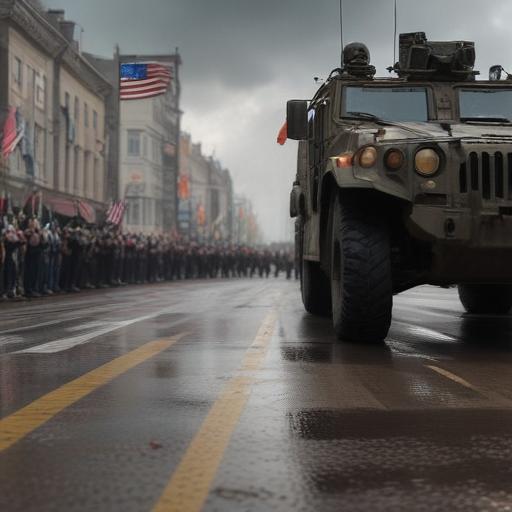Defense Secretary Pete Hegseth refrained from committing to respect any judicial ruling concerning the deployment limitations of National Guard troops and Marines in Los Angeles amid protests against federal immigration raids. A key hearing is set for U.S. District Judge Charles Breyer, who will evaluate California Governor Gavin Newsom’s request for a temporary restraining order aimed at confining the military presence to secure federal buildings in downtown Los Angeles.
The military’s assignment in this situation evolved to include safeguarding Immigration and Customs Enforcement (ICE) officers engaged in operations following President Trump’s immigration directives, which led to protests that escalated over six days, with numerous arrests reported in Los Angeles and across the nation.
During a congressional hearing, Representative Ro Khanna sought assurance from Hegseth regarding the respect for potential rulings on military deployments connected to immigration enforcement challenges. Hegseth argued that local judges should not dictate national security regulations.
Tensions between President Trump and Governor Newsom have heightened, with Newsom labeling the military deployment as unnecessary and unconstitutional. Trump countered by asserting that the city’s safety was improved by the National Guard’s presence and criticized Newsom’s management of the situation.
As violent protests continued, demonstrators clashed with law enforcement, resulting in the deployment of more military personnel trained in crowd control. The Marines are expected to assist in protecting federal properties without engaging in typical civilian law enforcement tasks.
Former military leaders have voiced concerns over the military’s role in domestic law enforcement, cautioning that using troops in such contexts could undermine public trust and troop morale.
As the nation anticipates an increase in protests related to immigration enforcement, significant rallies named “No Kings Day” are planned for June 14, coinciding with a military parade in Washington, D.C. Activists argue that their demonstration reflects true patriotism in the face of perceived government overreach.
The situation in Los Angeles continues to evolve, reflecting deep divisions in public sentiment regarding immigration policy and the use of military force domestically. While challenges persist, the collective expressions of dissent and organized action demonstrate a robust civic engagement among various communities across the United States.
